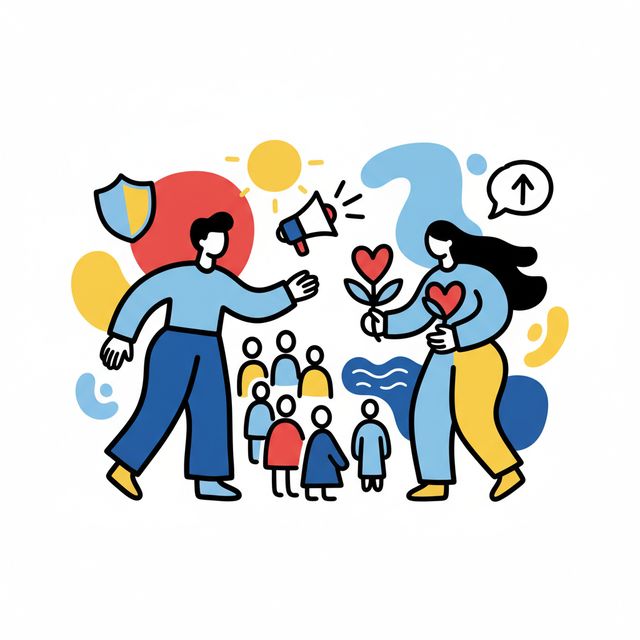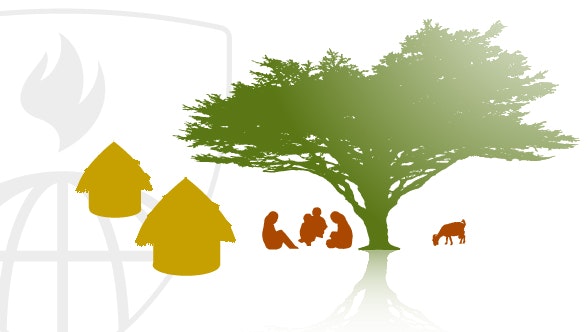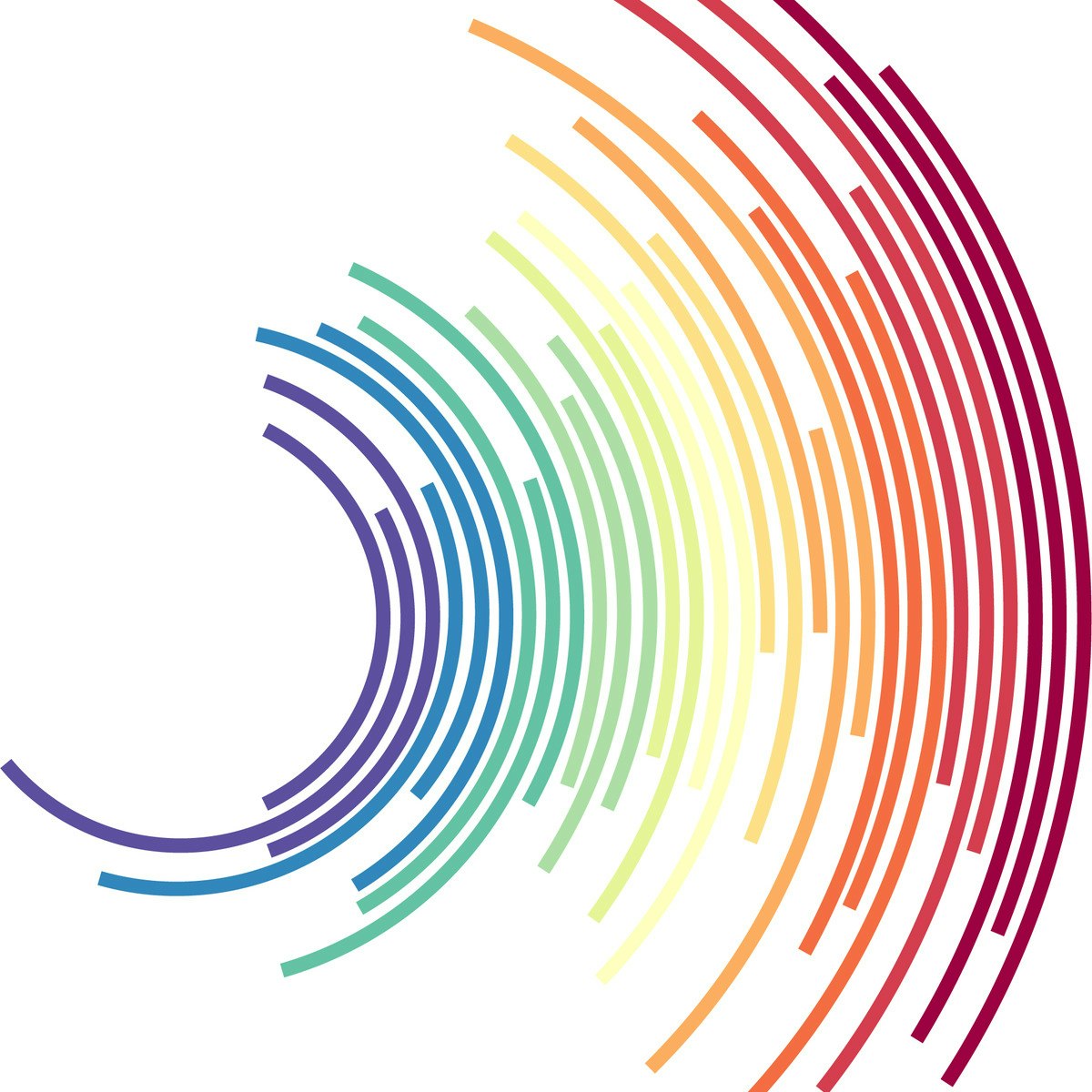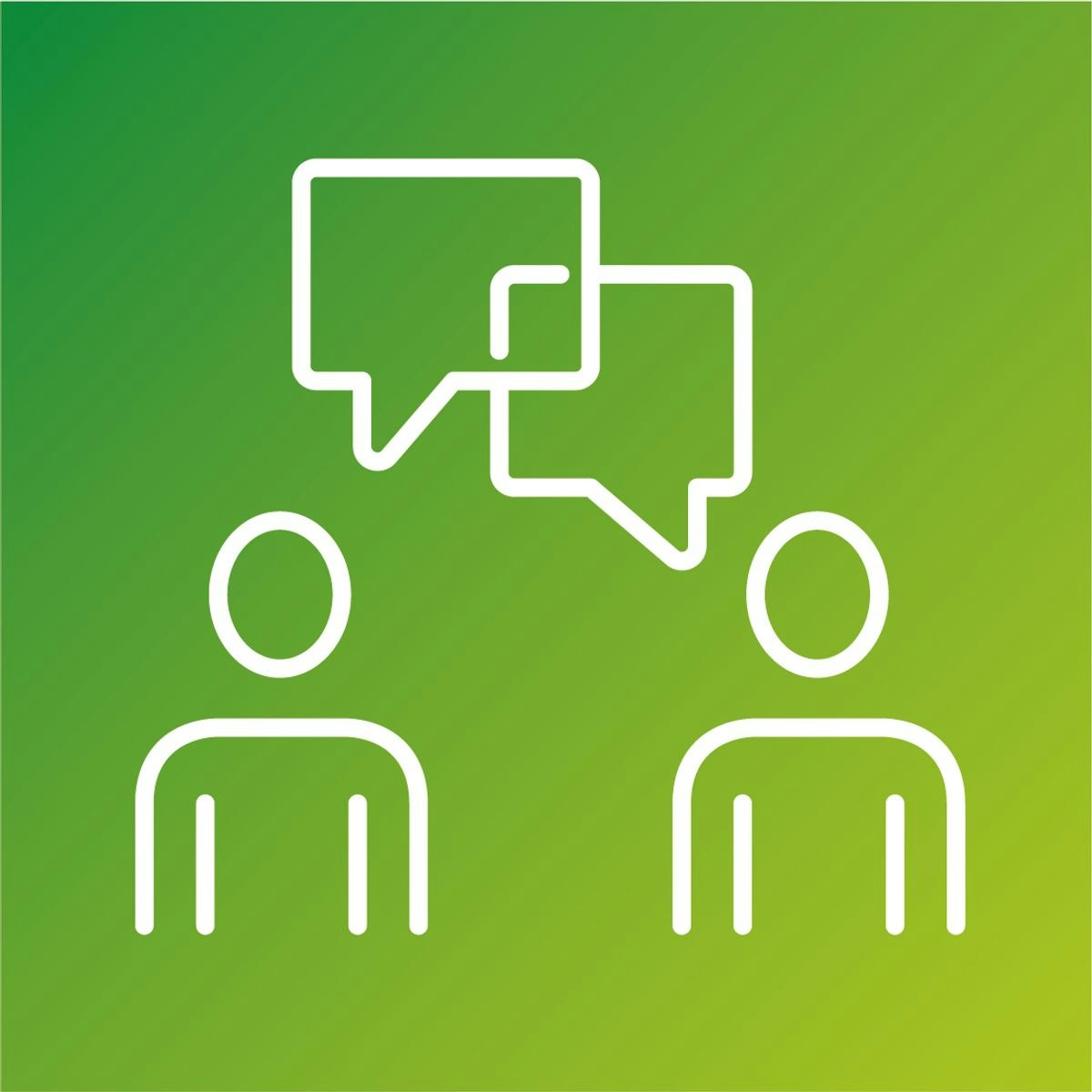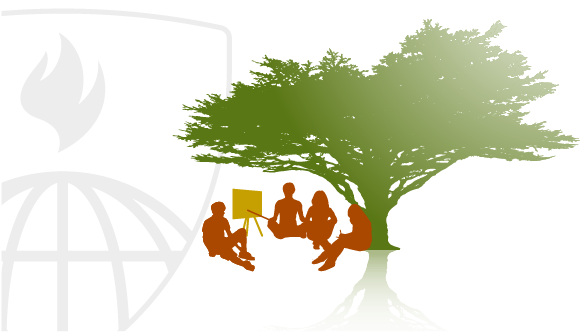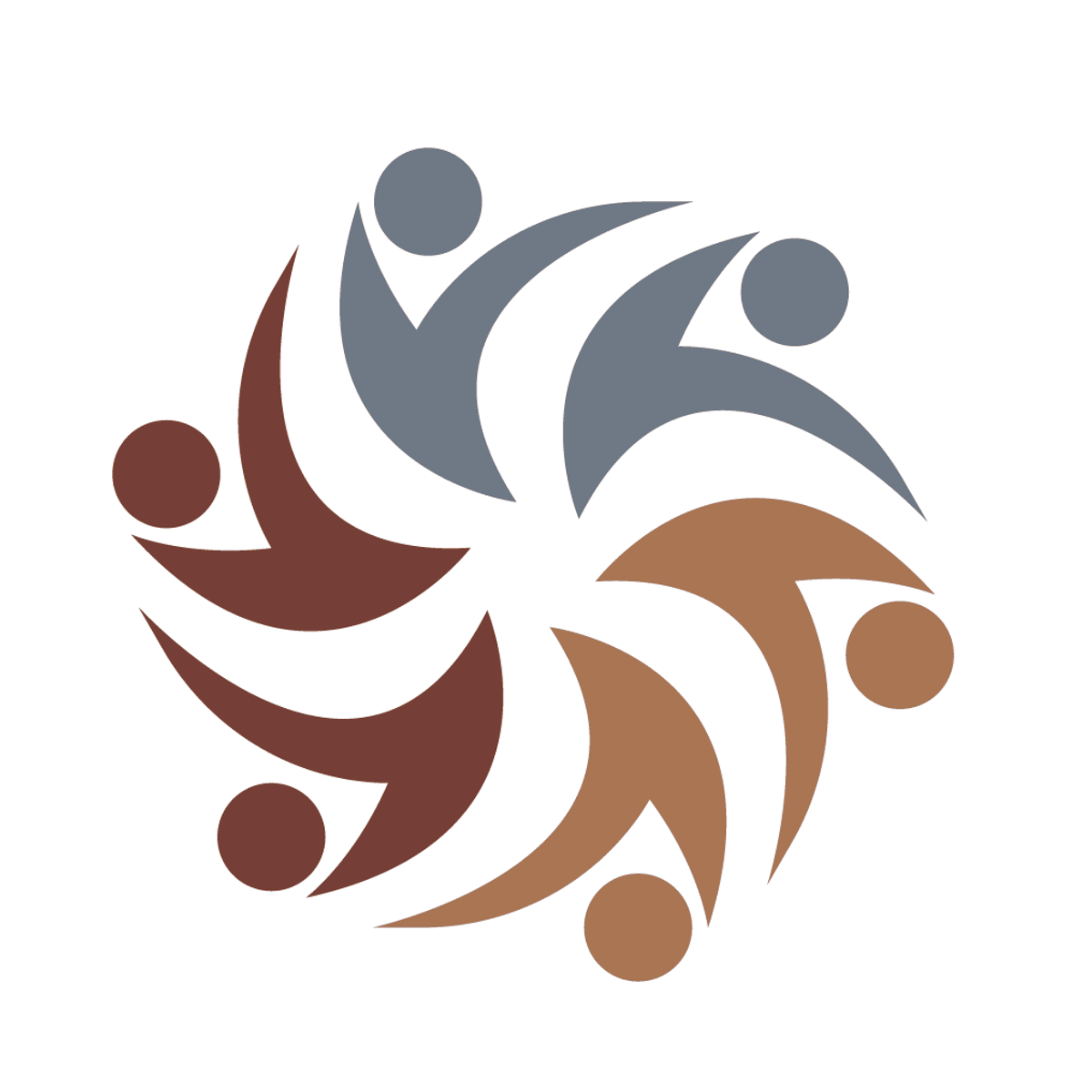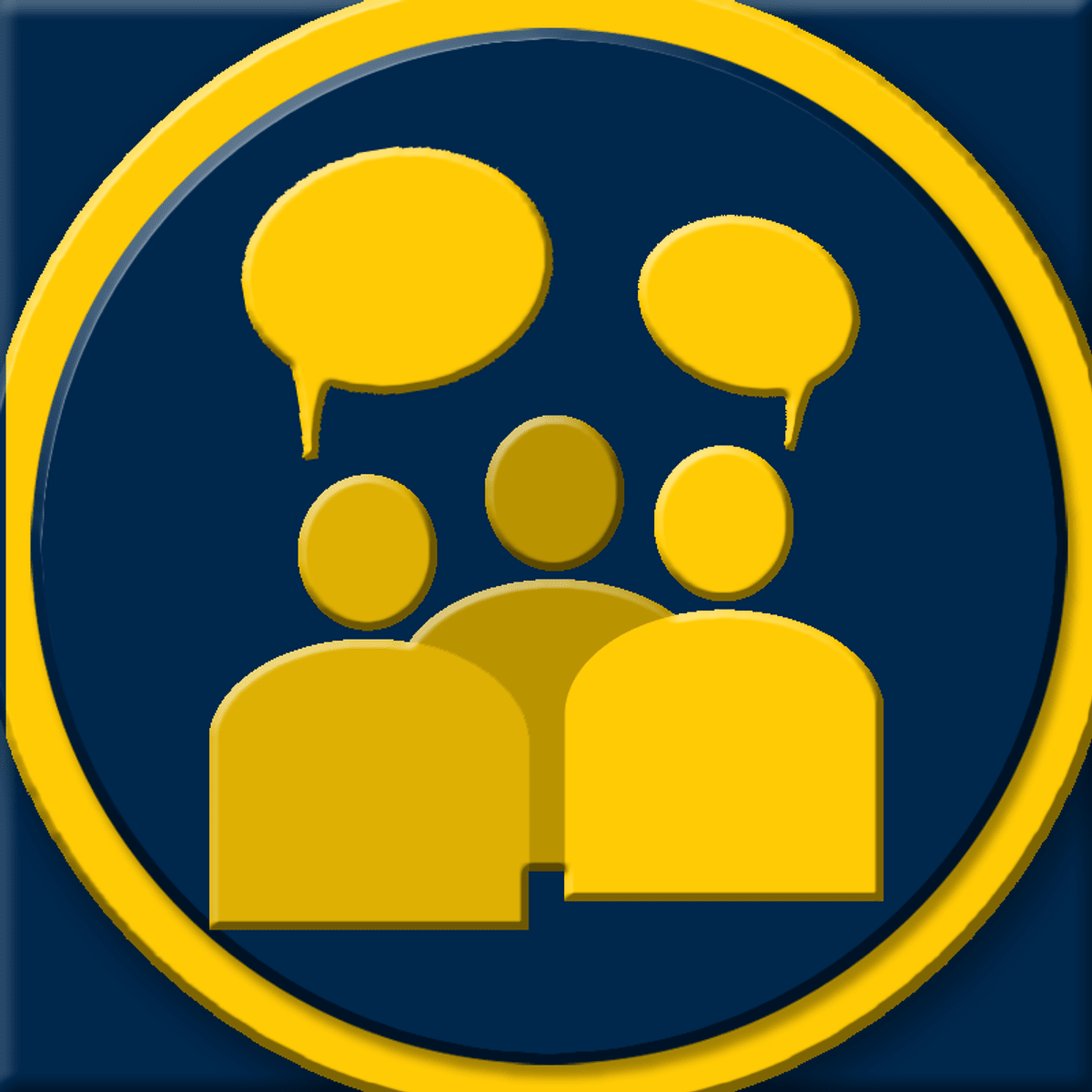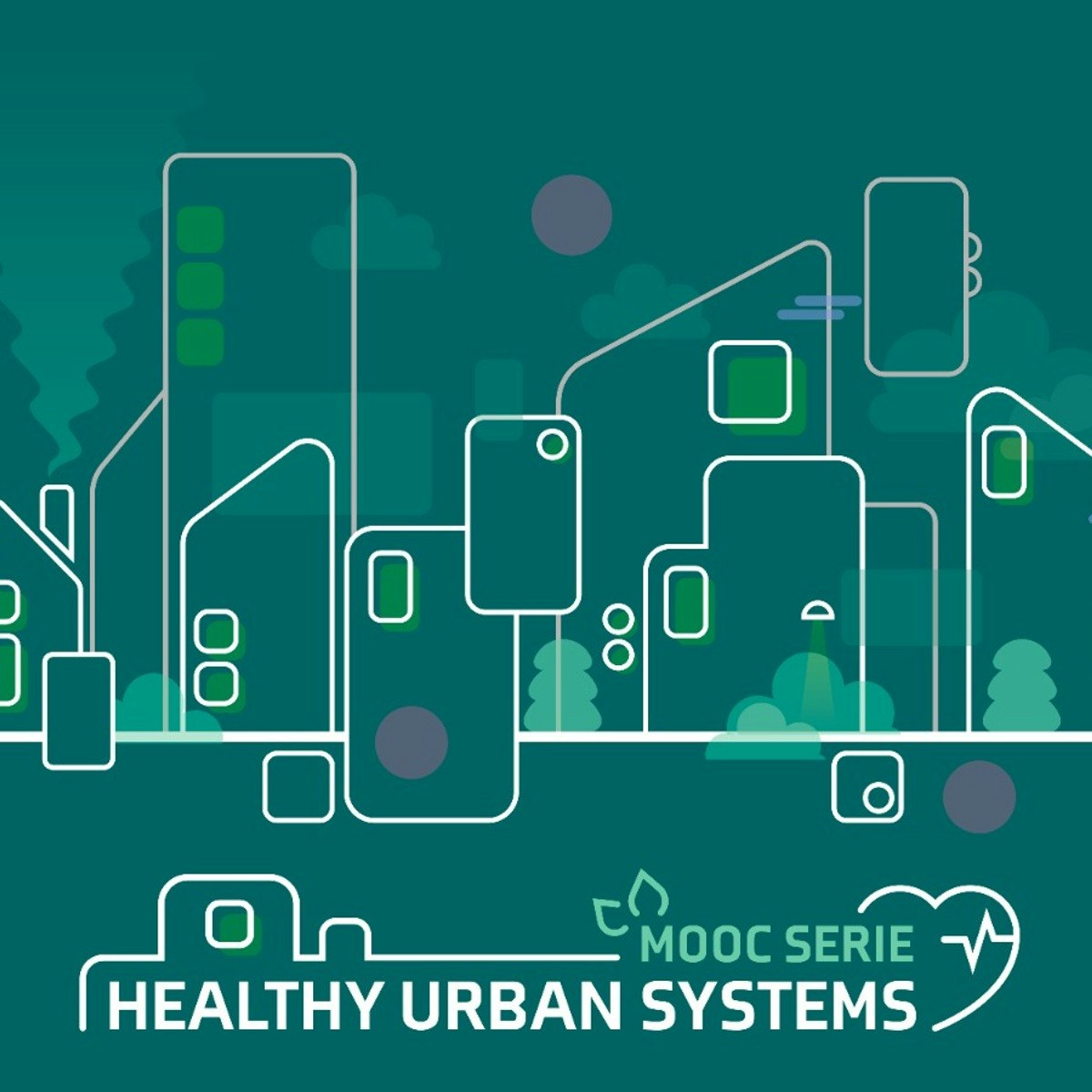Community Health Educator
Exploring a Career as a Community Health Educator
Community Health Educators play a vital role in improving the well-being of populations. They design, implement, and evaluate programs that promote health and prevent disease within specific communities. Their work involves understanding the unique health needs of a group and developing strategies to address them effectively, often focusing on education and behavior change.
Working as a Community Health Educator can be deeply rewarding. You might find excitement in empowering individuals to take control of their health or in seeing measurable improvements in community health outcomes thanks to programs you helped create. The collaborative nature of the role, working alongside healthcare providers, community leaders, and residents, also offers rich opportunities for connection and impact.
Understanding the Role of a Community Health Educator
Community Health Educators bridge the gap between health information and the people who need it most. They are passionate advocates for wellness, working tirelessly to empower individuals and communities to make informed health decisions and adopt healthier lifestyles.
Defining the Role and Its Objectives
At its core, a Community Health Educator aims to improve health outcomes and reduce health disparities within a specific population. This involves assessing community health needs, developing culturally appropriate health education programs, and advocating for policies that support public health. Their primary objective is prevention – stopping health problems before they start or worsen.
They translate complex health information into accessible formats, organize outreach events, and connect people with necessary health services and resources. Success is often measured by increased health knowledge, positive behavior changes, improved access to care, and ultimately, better health statistics within the target community.
This role requires a blend of skills, including strong communication, empathy, cultural sensitivity, and analytical abilities to understand health data and program effectiveness. It's about building trust and fostering partnerships to create sustainable health improvements.
Where Community Health Educators Work
Community Health Educators are employed in diverse settings, reflecting the wide reach of public health initiatives. Many work for non-profit organizations, focusing on specific health issues like chronic disease prevention, maternal health, or substance abuse education within targeted communities.
Government agencies at the local, state, and federal levels are also major employers. Here, educators might develop large-scale public health campaigns, implement health policies, or manage community health programs funded by taxpayers. Hospitals and healthcare systems employ them to run patient education programs, manage community outreach, and work towards improving population health management.
Other settings include schools, universities, corporate wellness programs, and private foundations. The specific environment often shapes the day-to-day tasks, but the overarching goal of promoting community well-being remains constant across these varied workplaces.
Societal Impact and Public Health Relevance
The work of Community Health Educators is fundamental to a functioning public health system. By focusing on prevention and education, they help reduce the burden on the healthcare system, decrease healthcare costs associated with treating preventable diseases, and improve overall quality of life.
They are often on the front lines of addressing health inequities, working directly with underserved and marginalized populations to overcome barriers to good health. This includes tackling social determinants of health – factors like poverty, education level, and access to healthy food – that significantly influence health outcomes.
In times of public health crises, like pandemics or natural disasters, Community Health Educators are crucial for disseminating accurate information, promoting safety measures, and connecting affected individuals with essential resources. Their ability to build trust and communicate effectively within communities is invaluable.
Understanding the broader context of public health systems is essential. These courses offer insights into the structures and challenges within which community health work takes place.
Daily Life and Core Responsibilities
The day-to-day activities of a Community Health Educator are dynamic and people-focused. While administrative tasks are part of the job, much of the time is spent directly engaging with communities and collaborating with partners.
Typical Tasks and Activities
A typical day might involve planning and delivering workshops on topics like nutrition, stress management, or smoking cessation. Educators often conduct health screenings for conditions like high blood pressure or diabetes at community centers or health fairs. Developing and distributing health education materials, such as brochures, flyers, or social media content, is also common.
Data plays a significant role; educators collect and analyze data to assess community needs, monitor program effectiveness, and report on outcomes. This might involve surveys, focus groups, or reviewing public health statistics. Building relationships within the community, attending meetings, and advocating for health resources are ongoing responsibilities.
Flexibility is key, as tasks can shift based on community needs, funding cycles, or emerging public health issues. Some days might be spent entirely in the office planning and writing reports, while others involve extensive fieldwork and community interaction.
These books delve deeper into the practical aspects and foundational concepts of community health education and promotion.
Working with Diverse Populations
Community Health Educators work with a wide array of populations, often focusing on groups facing specific health challenges or disparities. This could include low-income families, older adults, specific ethnic or racial groups, individuals with chronic illnesses, pregnant women, or youth.
Understanding the unique cultural backgrounds, beliefs, values, and languages of the target population is critical for effective program design and delivery. Educators must practice cultural competency, tailoring their approaches to be respectful and relevant. This involves active listening, building trust, and involving community members in the planning process.
Addressing sensitive topics requires tact and empathy. Educators often navigate complex social issues intertwined with health, such as poverty, discrimination, and lack of access to resources, requiring a non-judgmental and supportive approach.
These courses delve into the crucial topics of health equity and the social factors that influence health outcomes within diverse communities.
Collaboration is Key
Community Health Educators rarely work in isolation. Collaboration is essential for success. They frequently partner with healthcare providers, including doctors, nurses, and social workers, to coordinate care and ensure individuals receive comprehensive support.
Working with community leaders, schools, local businesses, faith-based organizations, and other non-profits helps extend the reach and impact of health programs. These partnerships facilitate access to target populations and leverage existing community resources and trust networks.
Collaboration may also involve working with policymakers and government officials to advocate for health-supportive policies and secure funding for community health initiatives. Effective communication, negotiation, and relationship-building skills are vital for fostering these productive partnerships.
These resources explore methods for engaging communities and partners effectively.
Educational Pathways to Becoming a Community Health Educator
A solid educational foundation is typically required to enter the field of community health education. Specific requirements can vary by employer and state, but certain degrees and certifications are commonly sought.
Relevant Undergraduate Degrees
A bachelor's degree is generally considered the minimum educational requirement for entry-level positions. Degrees in Public Health, Health Education, Health Promotion, or Community Health are the most direct pathways.
Other related fields such as nursing, social work, sociology, psychology, or biology can also provide a strong foundation, particularly if supplemented with relevant coursework or experience in health education principles and practices. Coursework often covers topics like epidemiology, health behavior theory, program planning and evaluation, communication, and research methods.
Regardless of the specific major, coursework emphasizing communication skills, cultural competency, understanding of health systems, and basic data analysis is highly beneficial for aspiring Community Health Educators. Explore related fields like Psychology or Social Sciences for relevant foundational knowledge.
These resources provide insights into the nursing perspective on community health.
Graduate Programs and Certifications
While a bachelor's degree is sufficient for some roles, a master's degree (e.g., Master of Public Health - MPH, Master of Science in Health Education - MS) is often preferred or required for advancement, leadership positions, or specialized roles. Graduate programs offer deeper knowledge in areas like program management, policy development, research methods, and advanced health behavior theories.
Certification is highly valued in the field. The primary credential is the Certified Health Education Specialist (CHES®), offered by the National Commission for Health Education Credentialing (NCHEC). Eligibility typically requires a bachelor's degree or higher in health education or a related field with specific coursework. Some employers may require CHES® certification for employment or promotion.
The Master Certified Health Education Specialist (MCHES®) is an advanced credential for experienced professionals with a graduate degree. Continuing education is necessary to maintain these certifications, ensuring educators stay current with best practices and emerging health issues. You can visit the NCHEC website for more details on certification.
These resources cover foundational and advanced concepts relevant to graduate-level study and practice.
Essential Coursework and Foundational Knowledge
Core coursework for aspiring Community Health Educators typically includes several key areas. Epidemiology, the study of disease patterns in populations, is fundamental for understanding health issues and identifying risk factors.
Courses in health behavior theory explore models that explain why people make certain health choices and how to influence behavior change effectively. Program planning and evaluation teaches the process of designing, implementing, and assessing the effectiveness of health interventions.
Other crucial subjects include health communication strategies, research methods for collecting and analyzing health data, community assessment techniques, health policy, and ethics in public health. Familiarity with specific health topics relevant to the target population (e.g., chronic diseases, infectious diseases, mental health) is also important.
These courses cover foundational concepts relevant to community health assessment and improvement.
Leveraging Online Learning and Building Experience
Formal degrees provide a strong base, but continuous learning and practical experience are vital, especially for those transitioning into the field or seeking to enhance their skills. Online platforms offer flexible ways to gain knowledge and supplement traditional education.
Online Courses and Hybrid Models
Online courses offer incredible flexibility for acquiring specific knowledge or skills relevant to community health education. Platforms like OpenCourser aggregate offerings from various providers, covering topics from basic public health principles to specialized areas like health communication or data analysis for health.
These courses can be particularly valuable for career changers needing to fill knowledge gaps or for current professionals looking to specialize or update their skills. Many universities also offer online or hybrid degree programs (MPH, MS) catering to working professionals.
While online learning provides accessibility, pairing it with hands-on experience is crucial. Look for courses that include practical assignments, case studies, or opportunities for community engagement, even if simulated. Saving courses to your OpenCourser list can help you organize your learning path.
These courses provide foundational knowledge accessible online, covering community health work and analysis.
Developing Skills Through Self-Directed Study
Beyond formal courses, self-directed learning can target specific competencies. Focus on building skills in health communication – learning how to tailor messages for different audiences and utilize various channels, including digital media. Data analysis skills are increasingly important; learn basic statistical concepts and how to use software for analyzing health data (learn data analysis here).
Program planning and evaluation frameworks can be studied through books, online guides, and toolkits provided by public health organizations. Grant writing is another valuable skill often acquired through workshops or self-study, crucial for securing funding in many non-profit and community settings.
Staying current involves reading public health journals, following reputable health organizations online, and participating in webinars or online communities of practice. The OpenCourser Learner's Guide offers tips on structuring self-learning effectively and making the most of online resources.
Building a Portfolio with Practical Projects
Experience is paramount. Seek volunteer opportunities or internships with local health departments, non-profits, or community clinics. Even short-term projects allow you to apply theoretical knowledge and build tangible evidence of your skills.
Consider developing a sample health education workshop, creating informational materials on a relevant health topic, or conducting a mini-needs assessment for a specific group (with appropriate guidance and ethical considerations). Document these projects carefully in a portfolio.
Participating in community health fairs, assisting with outreach events, or helping analyze program data under supervision can provide invaluable insights and networking opportunities. For career changers, highlighting transferable skills from previous roles (e.g., project management, communication, training) alongside new community health experiences is key.
Career Trajectory and Advancement
A career in community health education offers various pathways for growth and specialization. Understanding the typical progression can help you plan your professional development.
Starting Your Career: Entry-Level Roles
Entry-level positions often carry titles like Health Educator, Community Health Worker, Health Program Assistant, or Outreach Coordinator. Responsibilities typically focus on direct service delivery: conducting workshops, distributing materials, assisting with health screenings, and connecting individuals with resources under supervision.
These roles provide foundational experience in understanding community dynamics, implementing programs, and building communication skills. New graduates often start here, gaining practical experience while potentially pursuing certification (like CHES®).
Building a strong network, demonstrating initiative, and documenting accomplishments are important during this stage for future advancement.
These resources relate to the roles and programs involving community health workers.
Mid-Career Growth and Specialization
With experience (typically 3-5 years) and potentially advanced education or certification (like MCHES®), educators can move into roles with greater responsibility. Titles might include Program Coordinator, Program Manager, Health Education Specialist, or Community Health Supervisor.
Responsibilities often shift towards program development, management, and evaluation. This includes designing interventions, managing budgets, supervising staff or volunteers, writing grant proposals, and analyzing program data more independently. Specialization in areas like chronic disease, maternal/child health, infectious disease, or policy advocacy may occur.
Strong leadership, project management, and analytical skills become increasingly important at this stage. Networking and professional development remain crucial for staying current and identifying new opportunities.
These resources touch upon program management and supervision within community health.
Leadership and Strategic Roles
Experienced professionals can advance to leadership positions such as Director of Community Health, Public Health Manager, Health Promotion Director, or Policy Advisor. These roles involve strategic planning, overseeing multiple programs or departments, managing larger budgets, and engaging in high-level advocacy.
Leadership positions require significant experience, often a graduate degree, strong management skills, and a deep understanding of public health systems and policy. Responsibilities include setting organizational or departmental direction, building strategic partnerships, representing the organization externally, and ensuring program sustainability and impact.
Some educators may also move into academic roles, teaching and conducting research, or into consulting positions, advising organizations on health education strategies. The path often depends on individual interests, skills, and opportunities.
Essential Skills for Success
Beyond formal education, a specific set of skills and competencies is crucial for effective community health education. These skills are honed through experience and continuous learning.
Cultural Competency and Communication
The ability to understand, respect, and effectively interact with people from diverse cultural backgrounds is paramount. Cultural competency involves recognizing one's own biases, learning about the beliefs and practices of different communities, and adapting communication styles accordingly.
Strong communication skills – both written and verbal – are essential. Educators must clearly explain complex health information, actively listen to community concerns, facilitate group discussions, and write compelling reports and proposals. Tailoring messages to different literacy levels and preferred communication channels is key.
Building trust and rapport is foundational to effective communication and requires empathy, patience, and consistency in interactions with community members and partners.
This course focuses on communicating ideas effectively, a vital skill for educators, while the book addresses advocacy.
Data Interpretation and Needs Assessment
Community Health Educators need to be comfortable working with data. This includes collecting information through surveys, interviews, or focus groups, as well as interpreting existing public health data (like disease prevalence rates or demographic information).
Skills in basic data analysis are necessary to identify community health needs, prioritize interventions, monitor program progress, and demonstrate impact to funders and stakeholders. Understanding research methods helps educators critically evaluate evidence and implement evidence-based practices.
Conducting thorough community health needs assessments (CHNAs) is a core competency, involving systematic data collection and analysis to understand the health status, concerns, and resources of a community.
These resources provide insights into assessing community health needs.
This course introduces considerations for health data collection.
Program Planning, Grant Writing, and Advocacy
Developing effective health programs requires strong planning skills. This involves setting clear objectives, designing activities based on theory and evidence, creating realistic timelines and budgets, and developing evaluation plans.
Securing funding is often crucial, especially in non-profit settings. Basic grant writing skills – understanding how to research funding opportunities, structure a proposal, and articulate program goals and budgets – are highly valuable. Many educators develop this skill on the job or through specialized training.
Advocacy skills are also important for promoting policies and environmental changes that support community health. This involves understanding the policy process, communicating effectively with decision-makers, and mobilizing community support.
These topics relate to planning processes in community health.
Navigating Ethical Challenges
Community health education operates within a complex ethical landscape. Educators must navigate sensitive situations while upholding professional standards and respecting community values.
Confidentiality and Building Trust
Protecting the privacy and confidentiality of individuals participating in programs or sharing personal health information is a fundamental ethical obligation. Educators must be knowledgeable about privacy regulations (like HIPAA in the US, where applicable) and clearly communicate confidentiality policies.
Building trust is the cornerstone of the educator-community relationship. This requires honesty, transparency, reliability, and demonstrating genuine care and respect for individuals and the community as a whole. Breaches of trust can severely undermine program effectiveness and future engagement.
Navigating situations where confidentiality might conflict with safety concerns (e.g., reporting abuse) requires careful judgment and adherence to established protocols and legal requirements.
This book touches on advocacy, which often involves ethical considerations of representation and trust.
Addressing Health Disparities Equitably
A central tenet of community health is striving for health equity – ensuring everyone has a fair and just opportunity to be as healthy as possible. Educators often work with populations experiencing significant health disparities due to systemic factors like poverty, racism, and discrimination.
Ethical practice demands acknowledging these systemic barriers and designing programs that actively work to reduce inequities. This involves advocating for resource allocation that benefits underserved groups and ensuring programs are culturally appropriate and accessible to all, regardless of background or socioeconomic status.
It requires self-reflection to recognize personal biases and a commitment to challenging systems that perpetuate health injustice. Educators must champion fairness and advocate for equitable distribution of resources and opportunities.
These courses examine disparities and the factors contributing to them, providing context for ethical engagement.
Navigating Cultural and Political Sensitivities
Health behaviors and beliefs are often deeply intertwined with cultural norms, religious values, and political contexts. Educators must navigate these sensitivities with care and respect, avoiding approaches that could alienate or offend community members.
This may involve adapting program content or delivery methods to align with cultural values, collaborating with trusted community leaders, and being mindful of local political dynamics that might influence health initiatives. Open communication and a willingness to listen and learn are crucial.
Sometimes, evidence-based health recommendations may conflict with strongly held beliefs. Ethical practice involves presenting information respectfully, fostering dialogue, and empowering individuals to make informed choices within their own value systems, rather than imposing external views.
This book explores equity issues within community partnerships, relevant to navigating diverse perspectives.
Industry Landscape: Trends and Challenges
The field of community health education is constantly evolving, influenced by broader societal trends, technological advancements, and shifts in public health priorities and funding.
The Rise of Telehealth and Digital Outreach
Technology is increasingly shaping how community health education is delivered. Telehealth platforms allow for remote consultations, workshops, and support groups, expanding reach to individuals in rural areas or those with mobility limitations. Mobile apps and social media are used for health promotion campaigns and information dissemination.
While digital tools offer exciting possibilities, they also present challenges related to the digital divide – ensuring equitable access for individuals without reliable internet or technology skills. Educators must learn to effectively utilize these tools while still maintaining personal connection and addressing access barriers.
Integrating digital strategies requires new skills in digital health literacy and online engagement, alongside traditional face-to-face methods. As noted by reports from organizations like the World Economic Forum, bridging this divide is crucial for equitable digital health adoption.
This course examines how research findings are disseminated, which increasingly involves digital channels.
Funding Volatility and Resource Allocation
Public health programs, particularly those run by non-profits and government agencies, often face unpredictable funding streams. Budget cuts, shifts in grant priorities, and reliance on short-term funding cycles can create instability and challenge program sustainability.
Community Health Educators frequently need to be adept at resource management, grant writing, and demonstrating program value to secure continued funding. Advocating for consistent and adequate investment in public health infrastructure is an ongoing challenge for the field.
This volatility requires resilience, adaptability, and strong skills in demonstrating impact through data and evaluation. Understanding how interventions impact outcomes, as explored in some reports, is key for securing resources.
This book provides a broad overview relevant to understanding the context of funding challenges.
Emerging Health Challenges: Climate Change and Beyond
New and evolving health threats continually shape the priorities of community health education. Climate change, for example, brings health risks such as heat-related illnesses, respiratory problems from air pollution, and mental health impacts from climate-related disasters, requiring new educational strategies.
Other emerging issues include the ongoing opioid crisis, rising rates of chronic diseases, mental health challenges exacerbated by societal pressures, and the need for preparedness for future pandemics. Educators must stay informed about these evolving threats and adapt their programs accordingly.
This requires continuous learning, flexibility, and collaboration across sectors to address the complex interplay of environmental, social, and behavioral factors affecting community health. Exploring courses in Environmental Sciences or Sustainability can provide valuable context.
These courses touch upon broader systems affecting health, including urban environments and specific health concerns like aging and substance use.
Frequently Asked Questions (FAQs)
Here are answers to some common questions about pursuing a career as a Community Health Educator.
Is demand for Community Health Educators growing?
Yes, the demand for health education specialists, including Community Health Educators, is projected to grow. According to the U.S. Bureau of Labor Statistics (BLS), employment in this field is expected to increase by 7 percent from 2022 to 2032, which is faster than the average for all occupations.
This growth is driven by ongoing efforts to improve public health outcomes, manage healthcare costs through preventive measures, and address persistent health disparities across various populations. The focus on wellness and prevention in healthcare settings and communities fuels this demand.
Opportunities are anticipated across various sectors, including government agencies, healthcare facilities, non-profit organizations, and corporate wellness programs.
What salary ranges are typical?
Salaries for Community Health Educators vary based on factors like education level (Bachelor's vs. Master's), years of experience, professional certifications (like CHES®), geographic location, and the type of employing organization (e.g., government, non-profit, hospital).
The BLS provides median annual wage data as a benchmark. As reported in May 2023, the median annual wage for health education specialists was $62,860. Entry-level positions will typically start lower, while experienced professionals in leadership roles can earn significantly more.
It is advisable to research salary expectations specific to your region and the types of organizations you are interested in, using resources like the BLS or industry salary surveys.
How does this role differ from public health advisors or community health workers?
While these roles overlap within the public health sphere, their primary functions differ. Community Health Educators focus specifically on designing, implementing, and evaluating educational programs aimed at promoting health and preventing disease through behavior change.
Community Health Workers (CHWs) often act as liaisons or navigators, providing direct support, advocacy, and basic health information, frequently drawing upon shared cultural or life experiences with the community members they serve. They connect individuals to health and social services.
Public Health Advisors usually operate at a more strategic level, often within government or large organizations. They may analyze health trends, develop policies, manage large programs, or advise leadership, typically requiring advanced degrees and substantial experience in the field.
These resources provide further context on Community Health Worker programs and roles.
Are licensure or certification requirements state-specific?
Generally, Community Health Educator is not a licensed profession in the way that doctors or nurses are. However, certification, particularly the CHES® (Certified Health Education Specialist) credential, is highly valued and often preferred or required by employers.
While CHES® is a national credential, specific requirements for certain public health roles, especially for Community Health Workers, can sometimes vary by state, potentially involving state-level registries or specific training mandates. Requirements are primarily set by employers based on the demands of the position.
Always check the job descriptions and research employer expectations in your target location to understand the necessary qualifications and certifications.
What industries hire Community Health Educators?
Community Health Educators find employment across a diverse range of industries focused on health and well-being. The primary employers are government health departments (local, state, federal), hospitals and healthcare systems (including clinics and HMOs), and non-profit community health organizations.
Other significant employers include educational institutions (schools, colleges, universities managing student or employee wellness), corporate wellness programs aiming to improve employee health, and insurance companies developing member wellness initiatives.
Opportunities also exist within private foundations focused on health philanthropy, research institutions conducting health studies, and international health organizations working globally.
How does this career balance fieldwork and administrative tasks?
The balance between fieldwork (direct community interaction, conducting workshops, attending health fairs) and administrative tasks (program planning, report writing, data analysis, grant writing, communication) varies significantly.
Entry-level roles often emphasize fieldwork and direct program implementation. Mid-career and leadership roles typically involve a greater proportion of administrative responsibilities, including strategic planning, budget oversight, staff supervision, and evaluation.
Most positions require a blend of both skill sets. Professionals in this field need strong organizational abilities to manage diverse tasks effectively, moving between community engagement and office-based work seamlessly.
Concluding Thoughts
Embarking on a career as a Community Health Educator is a commitment to improving the well-being of others. It requires dedication, empathy, strong communication skills, and a passion for health equity. The work can be challenging, navigating complex social issues and resource limitations, but the potential to make a tangible difference in people's lives and communities is immense.
Whether you are just starting to explore this path, considering a career change, or looking to advance within the field, continuous learning and practical experience are key. Resources like online courses found through OpenCourser's Health & Medicine section and professional development opportunities can equip you with the necessary knowledge and skills. While demanding, it's a profoundly rewarding profession for those driven to empower communities and build a healthier future.

